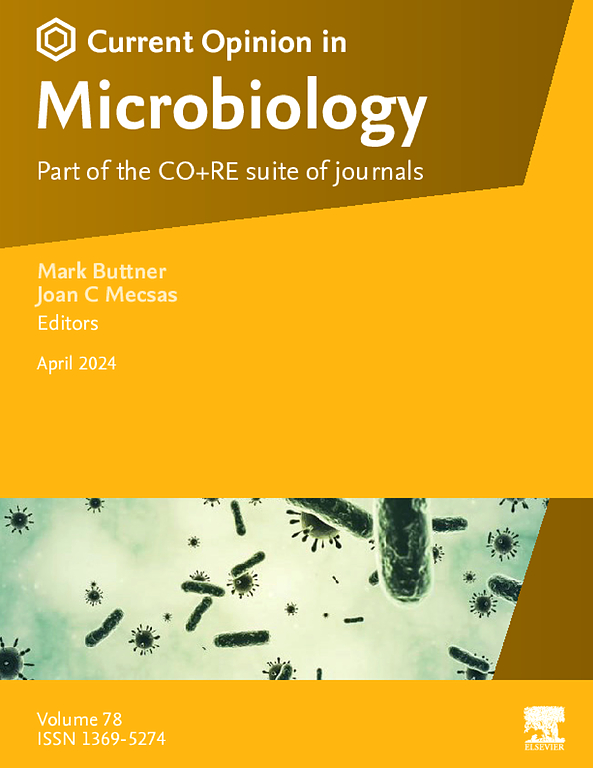Circadian interactions between plants and microorganisms
IF 7.5
2区 生物学
Q1 MICROBIOLOGY
引用次数: 0
Abstract
Life on Earth evolved in environmental conditions that fluctuate with a daily cycle. Organisms from all kingdoms of life, including plants and their associated microorganisms, harbour circadian clocks as an adaptation to these environmental changes. We review the involvement of circadian clocks in associations between plants and microbes, focusing first on mechanisms of specific circadian clock-regulated plant–microbe interactions. We then discuss more general ecological and evolutionary consequences of clock regulation of plant–microbe interactions and argue that circadian clocks can choreograph complex plant–microbe community interactions across multiple levels of biological organisation. We also discuss the difficulties in determining the precise nature of interactions in such communities, for both individual rhythmic interactions and the emergent rhythmic properties of these communities. An understanding of the regulation of these interactions by circadian clocks is likely to have implications for crop performance, fertiliser and pesticide use, soil and ecosystem health, biogeochemical cycling, and the impacts of global warming.
植物和微生物之间的昼夜相互作用
地球上的生命是在每日周期波动的环境条件下进化的。来自所有生命王国的生物体,包括植物及其相关微生物,都拥有生物钟,以适应这些环境变化。我们回顾了生物钟在植物和微生物之间的关联中的作用,首先关注生物钟调节的植物-微生物相互作用的具体机制。然后,我们讨论了时钟调节植物-微生物相互作用的更一般的生态和进化后果,并认为生物钟可以在生物组织的多个层面上编排复杂的植物-微生物群落相互作用。我们还讨论了确定这些群落中相互作用的确切性质的困难,因为这些群落的个体节奏相互作用和涌现的节奏特性。了解生物钟对这些相互作用的调节可能会对作物性能、化肥和农药使用、土壤和生态系统健康、生物地球化学循环以及全球变暖的影响产生影响。
本文章由计算机程序翻译,如有差异,请以英文原文为准。
求助全文
约1分钟内获得全文
求助全文
来源期刊

Current opinion in microbiology
生物-微生物学
CiteScore
10.00
自引率
0.00%
发文量
114
审稿时长
6-12 weeks
期刊介绍:
Current Opinion in Microbiology is a systematic review journal that aims to provide specialists with a unique and educational platform to keep up-to-date with the expanding volume of information published in the field of microbiology. It consists of 6 issues per year covering the following 11 sections, each of which is reviewed once a year:
Host-microbe interactions: bacteria
Cell regulation
Environmental microbiology
Host-microbe interactions: fungi/parasites/viruses
Antimicrobials
Microbial systems biology
Growth and development: eukaryotes/prokaryotes
 求助内容:
求助内容: 应助结果提醒方式:
应助结果提醒方式:


